Album review: Aam Tateel's ‘Khudsar’ is poetry in anguish
Band's debut album dresses verses from the writings of Jaun Elia, Peerzada Salman in rage and rumble.
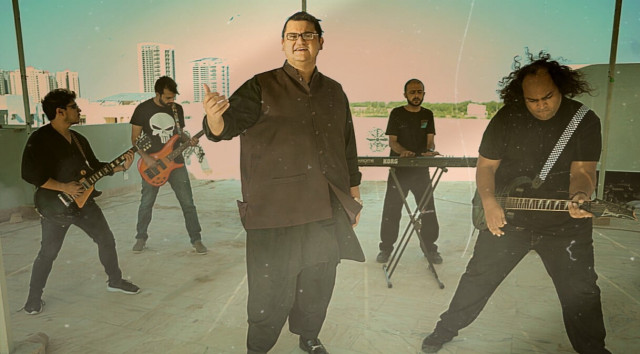
A relatively new band from Karachi is reimagining existing Urdu poetry to represent the city’s contemporary sociopolitical struggles through music. Calling itself Aam Tateel, the group comprises of vocalist Ali Hassan, drummer, guitarist and singer Usman Sheikh, bassist Ather Ahmad, guitarist Ahad Husain and keyboardist Sohaib Ali Khan.
The group does not associate itself with a particular genre but blends “Eastern Classical sensibilities with Western instrumentation.” It has demonstrated this fusion with its 13-track debut album, Khudsar, which evokes a series of emotions but is primarily poetry dressed in anguish and rage.
The idea
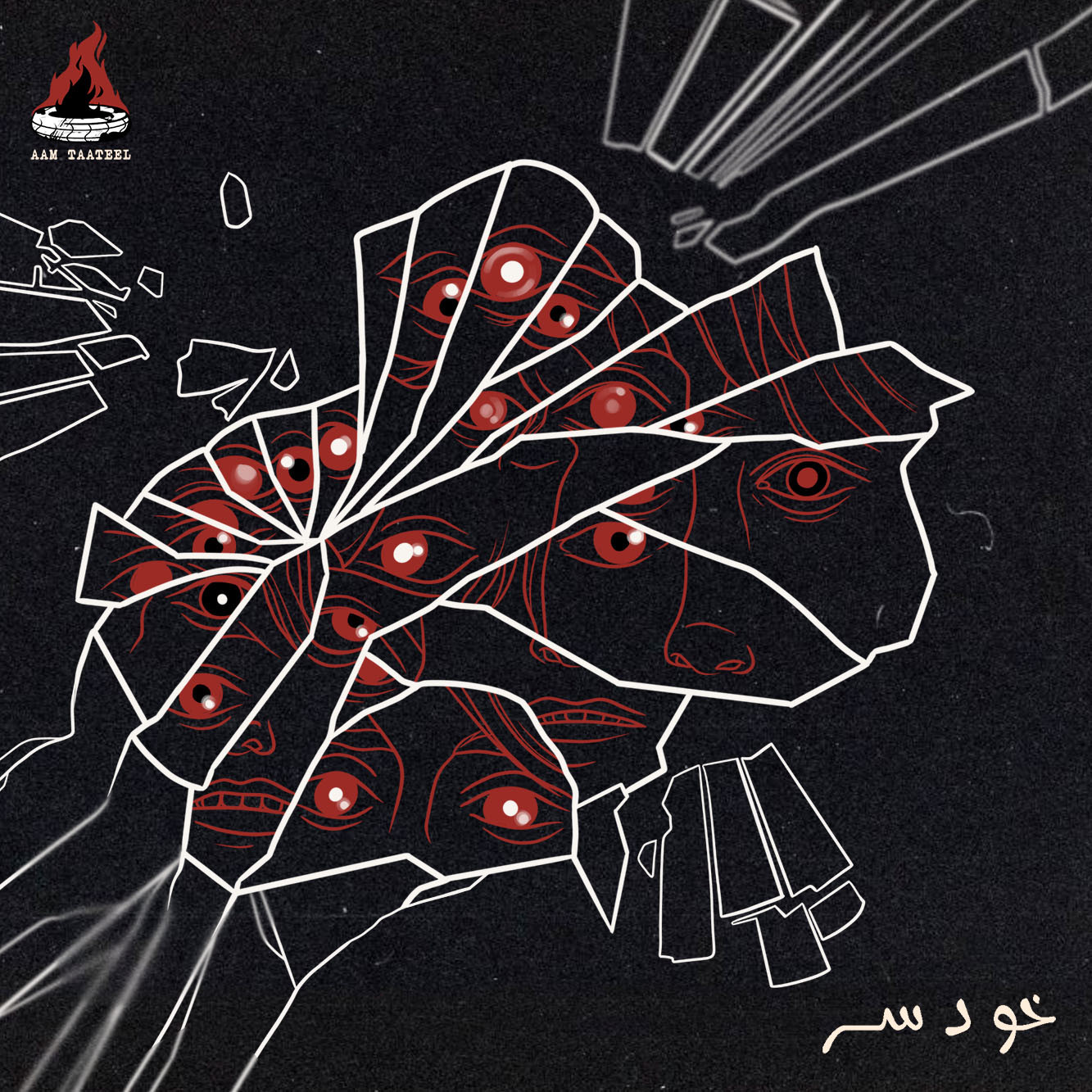
Khudsar is a voyage of reality checks as verses from the works of Jaun Elia, Peerzada Salman, Yasra Rizvi and Waheed Noor hit too close to home. Musically, the album does everything a debut album – in profuse capacity – should: emphasise on the musicality of the artists involved in its making. And while most bands focus on writing their own songs from scratch – which is appreciated and encouraged – it is clear that borrowing poetry has given this band the room to experiment with music.
For a studio album, Khudsar is a feat to have as a debut. Especially with the previously dubbed ‘mismatched’ elements it so effortlessly fuses together. The poetry used chronicles real challenges faced by Pakistanis of today who would otherwise struggle to relate with the bookish romance and inflated grief presented in our pop culture.
The collection
The title track and one-minute prelude to the album, Khudsar, conveys a chilling narration layered on synths and Tanpura, presumably… This prologue leads listeners to the second and one of the most impressive tracks on the album, Beqarari.
Evident from its name, Beqarari embodies the stress and annoyance Jaun talks about in this writing of his. The song is conceptually strong as it fuses thrash metal with Eastern Classical vocals which sit perfectly well with raging guitar solos and some highly impressive bass parts. Beqarari is impeccable with the exception of a pretentious jazz bit, which lead vocalist Ali Hassan has dubbed imperative.

“The dichotomy of Jaun’s poetry is what makes it special. Our poetry is often dressed delicately when composed in the form of ghazal but Jaun’s poetry is not delicate,” Ali tells The Express Tribune. “Tablay ke taalon men likha jaata hai ghazal ko but the way Jaun writes, follows the principles of jazz,” he claims.
Ali goes on to assert that Jaun is a ‘talkh’ (bitter) poet, as opposed to the sad connotations his poetry may induce. “Jaun acknowledged the hypocrisies of life and rebuked them. There isn’t a place for romance in the kind of society we live in so the ‘talkhi’ in his work embodies societal struggles. And talkhi has no raag. So we took his emotions and conveyed them truthfully by enhancing his disdain and satire with metal,” Ali elaborates.
But the next song, Kisi Ki Yaad, penned by Rajender Krishan, sees both Ali and Ahad on vocals as they pull off some impressive harmonies. However, this song has nothing new to offer musically. There is a metal alteration towards the end but since the composition seems to provide a breather from the previously, loaded number, the track is appreciable.
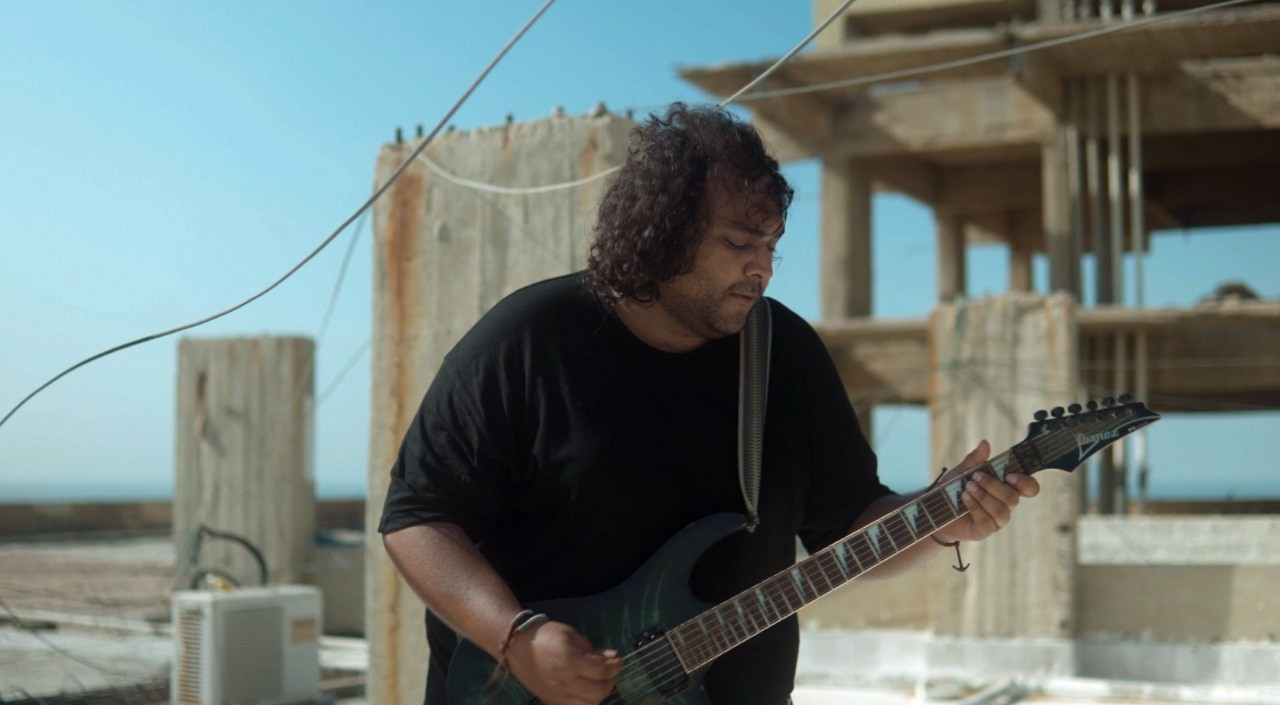
Yaaro, on the other hand, is penned by Peerzada Salman, and released in the form of a music video as well. Initially, this track gives the impression that it follows an odd time signature when it doesn’t. It marks a moment in the album where Eastern Classical vocals blend perfectly with Western instruments, while the shredding on the bass is what keeps the song alive. Yaaro easily nabs the top spot on the album.
Next is Pyaas, which lands among the underwhelming tracks of the collection. The song features Ahad on vocals and may even remind one of Strings’ Sar Kiye Ye Pahar. “We are drawing from the same source so it may seem like Pyaas is reminiscent of a Strings number but when I wrote this song, I wanted it to depict freedom and the craving of it” asserted Ali.
Nevertheless, Pyaas makes way for Raat, which once again, fails to hit the mark in its attempt to channel Damnation by Opeth.
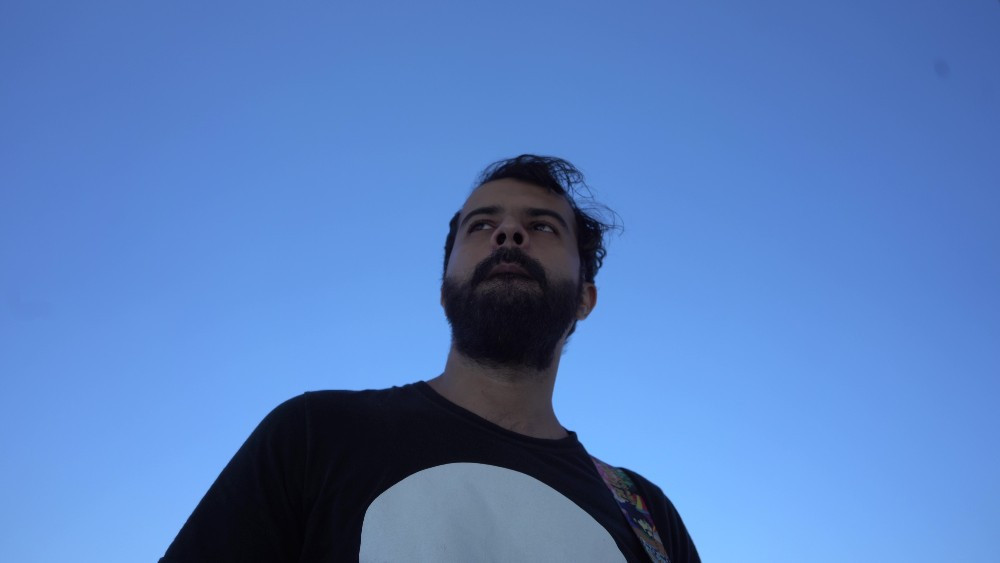
Ali agreed that the song, featuring Waheed Noor’s poetry, might have drawn inspiration from the aforementioned band. “We all listen to progressive rock music and organically arrive at certain decisions. So when Ather brought this composition to me I told him ‘mujhe sleep paralysis wali vibes arae hain,’ and he jumped, because that was exactly what he was going through. This is called serendipity,” Ali said.
While in Akhri Baar, another composition of Jaun’s poetry, the drums and synths stand out as the track seems reminiscent of Porcupine Tree’s Fear of a Blank Planet. It grows on you and gets more interesting when you realise the Puriya Dhanashree raga may have been expressed in a metal curation through this number. The song also features exceptional guitar playing and is executed immaculately.
This is followed by the band’s homage to electronic music in the form of Aesha and Yasra. The prior’s prelude starts off in a dreamy fashion, featuring Sohaib in all his glory. It is difficult to determine whether he has made the tracks or the tracks have made him. Aesha is a dance between Sohaib’s skills on the keys and Usman’s beat sampling sensibilities. It also displays the band’s ability to successfully pull off an EDM number while reimagining another raag.
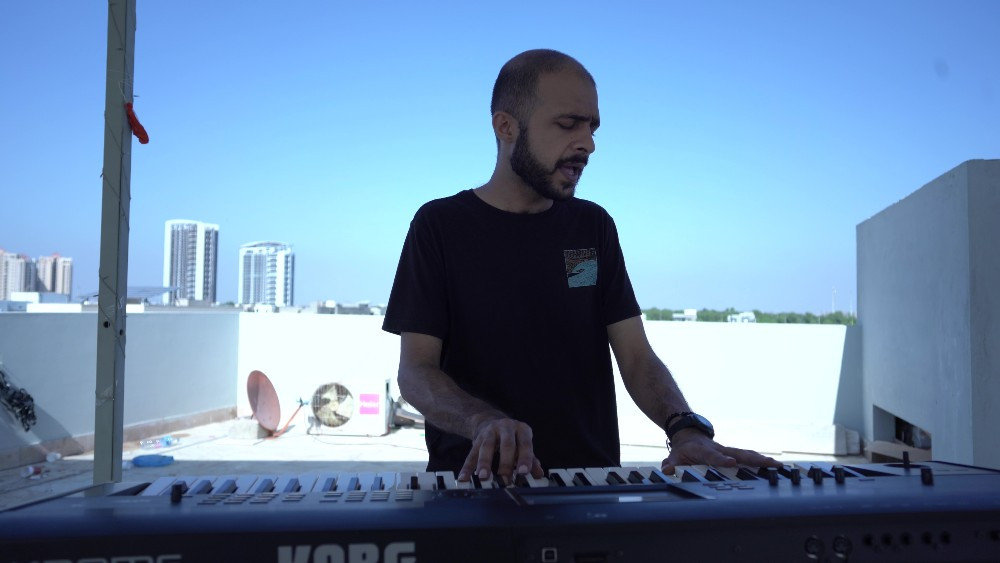
Yasra and its prelude on the other hand are more coherent but the singing on this track is not as impressive, with the exception of a few parts. It is commendable, however, that the album offers each band member a chance to stand out with every song.
Yasra is followed by Woh Tabiyat, the video of which had released in December 2020. Another Jaun track, the song’s main riff is very Dream Theater, however, the guitar solo in the second half of this number is what steals the show. The album concludes with Bohat Dil Ko Khushada.
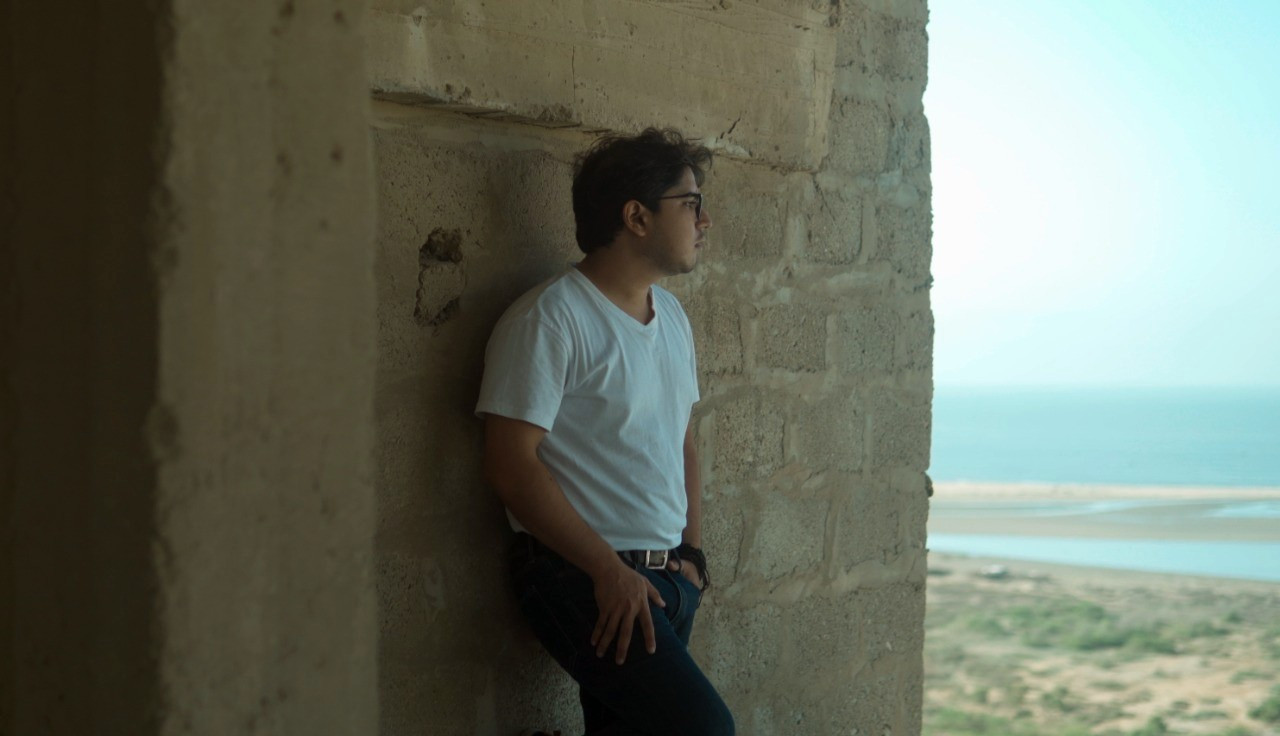
The execution
As for legally attaining the rights to Jaun’s work through his estate, Ali laments that the band tried to find a legal representation for him but couldn’t. “What we could do, was take permission from the living poets and Jaun’s daughter, Sohaina, was among the people who heard our work and gave a positive response. I also asked my ustad, who was Jaun’s student, along with Jaun’s publisher, all of whom were happy we were doing this,” assures Ali.
About the rest, Ali recalls, “I really liked Peerzada sahab’s Yaaro when I first read it, so when I approached him, he happily let me use it. The same happened when I approached Wahid Noor sahab for Raat. As for Yasra Rizvi, I have always been her fan. So I’m glad she met with me, heard my vision and gave me a go ahead.”
Released on July 2, Khudsar was recorded at Base Rock Cafe by Ahad Husain, Usman Sheikh and Hassaan Arif Kably. It was mixed by Usman Sheikh at Ebullition Art Recordings with additional help from Ahad Husain. While the stem mixing and mastering was done by Umair Dar at A for Aleph, the digital mastering was done by Adeel Tahir.
Have something to add to the story? Share it in the comments below.

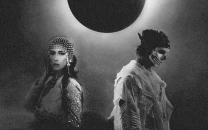
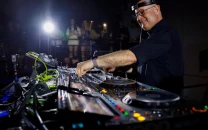


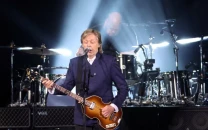













COMMENTS
Comments are moderated and generally will be posted if they are on-topic and not abusive.
For more information, please see our Comments FAQ